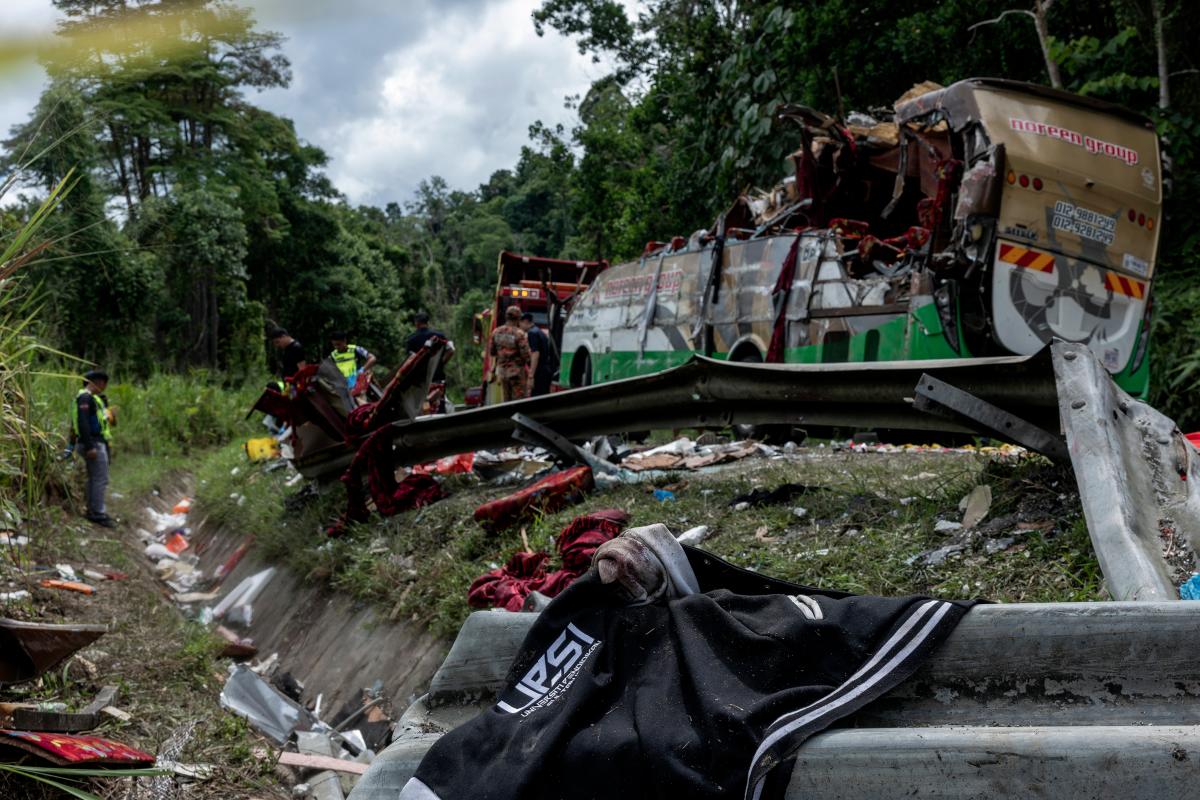KUALA LUMPUR: The tragedy that claimed 15 lives at KM53, of the East-West Highway (JRTB), near Tasik Banding, Gerik, early Monday morning, clearly indicated the laxity of law enforcement and the careless attitude of public transport operators who take passenger safety for granted.
Although it is mandatory to install and wear seat belts for all passengers of new express buses and sightseeing buses starting in 2020, after almost five years, the regulation appears to be largely ineffective, with little to no real impact.
In fact, in the tragedy early yesterday morning, some victims were reported to have been thrown out, thus becoming a stark reminder that the safety of lives cannot be compromised.
Although a thorough investigation into the tragic incident is being conducted through a newly established special task force, experts also view the failure of enforcement to implement existing laws as a matter of serious concern, furthering the need to improve passenger safety.
ALSO READ: Safety, improvement of East-West Highway to be brought to Cabinet tomorrow- Loke
Commenting on this, Alliance for a Safe Community chairman Tan Sri Lee Lam Thye stated that many buses still do not comply with the seat belt requirement.
“When an accident occurs, of course passengers are thrown out of the bus due to not wearing seat belts. This demonstrates the careless attitude of public transport operators, who appear to disregard the safety of passengers.
“So I see this issue involving the failure to enforce the law. It is very important to implement and enforce to reduce the impact of fatal accidents,” he told Bernama.
Meanwhile, Malaysian Road and Transport Safety Association president Md Hairolazaman Muhamed Nor said his party also emphasised monitoring the installation of seat belts in every bus.
ALSO READ: UPSI bus tragedy probe still in early stage - Ayob Khan
“This action can encourage more bus operators to follow the regulations set by the Industry Code of Practice (ICOP) Safety Training and the Road Transport Department,“ he said.
Explaining further, Md Hairolazaman said the installation of a Global Positioning System (GPS) and cameras installed in buses can monitor passengers to always wear seat belts throughout the journey.
Sharing the same view, Universiti Putra Malaysia Road Safety Research Centre head Assoc. Prof. Dr Law Teik Hua said bus operators can no longer take lightly the provision of seat belt in passenger seats which are safety-related.
“It is mandatory to have a seat belt in every seat in the bus. So the parties involved must find a way to ensure that passengers use the seat belt, for example, a seat belt with an ‘alarm’.
ALSO READ: UPSI bus crash driver had 18 outstanding traffic violations: Police
“If not worn (the seat belt), it will sound and warn the bus driver to ensure that passengers comply with the rules,“ he explained.
In the accident that occurred between 12.30 and 1 am, 15 students from Universiti Pendidikan Sultan Idris (UPSI) died after the chartered bus they were travelling in from Jertih to Tanjung Malim, Perak overturned after being involved in an accident with a multi-purpose vehicle (MPV) at JRTB, near Tasik Banding, Perak.
The accident also left 33 others injured, including the bus driver and attendant, as well as the driver and three passengers of a Perodua Alza.









